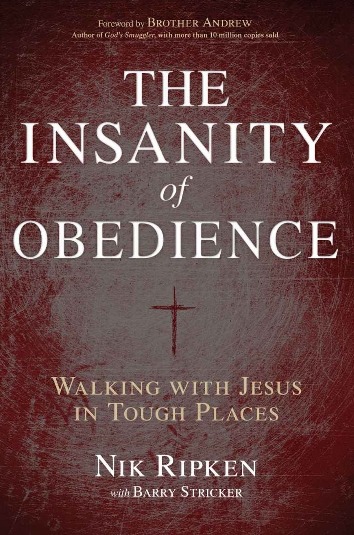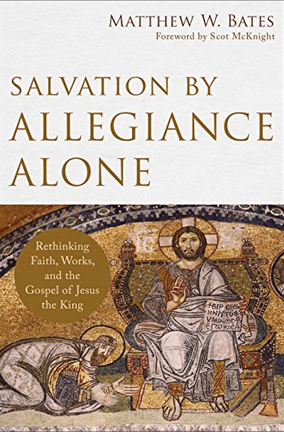
Missional: Joining God in the Neighborhood
by Alan J. Roxburgh
While sitting in a coffee shop filled with people one Sunday morning, Roxburgh asked himself the question:
How might we create the kinds of safe spaces where the real stories shaping people’s lives become the ones we own and address in our churches? How do we do church better on Sunday so that it is more relevant to where these people are? How do we get these people in the coffee shop to church on Sunday? Then I realized my questions were all wrong. (p.25)
He goes on to make the observation:
“A problem we face is that since the sixteenth century our questions have been shaped by the Reformation…the Reformation resulted in a focus that still controls our imagination – a focus on church questions that are no longer helpful in the missionary situation that confronts us. (p.27)
Roxburgh identifies the period between 1970 and 2000 as a time when the church rationalized technical success while the culture was shifting around them. It was an era of religious winners and losers as evangelicals and charismatics won the culture wars in terms of growth. The primary approach to the emerging cultural upheaval of post-modernism was to adjust, renew and fix the church through such movements as church growth, church effectiveness, and church health. (p.47)
In the 1990’s people began to dialogue about becoming missional, with its three-way dialogue between the church, the culture and the gospel. Roxburgh tells the parable of three long time friends who reunite after years apart. Rather than it being a time of mutual sharing, one friend is totally consumed with his own needs and desires, much to the disappointment of the other two, who soon go home saddened by the encounter. Later the author explains the three friends are the culture, the gospel, and the church, with the church being the self-centered one who tries to mine the other two for whatever can help make him more successful, rather than being truly interested in them. The church has become self-centered and infested with consumerism, careerism, and individualism. The church has studied the culture to design the best marketing strategies with which to lure people into attractional services.
The second part of the book shows how Luke wrote his gospel and the companion work Acts to a generation of Christians who had somewhat lost its mooring following the destruction of Jerusalem and the temple and who were in the midst of intensifying persecution from the Romans. Roxburgh claims that Luke Chapter 10 takes us on a
“journey that moves from a primary focus on the church to the place of making the church work again in the neighborhoods and communities where we live so we can ask what God is already doing ahead of us in these ordinary places.” (p.71)
Scripture proposes a way of being in the world that attends to the concreteness of everyday life rather than romanticized idealizations of what the church or the culture ought to be…The world the biblical texts propose is not about the selling or marketing of a product but the re-forming of a world in the midst of the ordinary…the God of Scripture is known in the ordinary and the everyday. (p.77)
Roxburgh writes:
Our situation in North America today can be seen as very similar. For many of us the promises and expectations of the gospel seem to have failed. Just as Luke does not offer the Gentile Christians forms of adjustment, so our own crisis of meaning as Christians will not be addressed with one more set of tactics. Much of what is being offered today as “missional” are tactics for making the church more successful or effective…the need of our time is to allow the story of what God is doing in the world to reform us all over again in a different way. (p.89)
Still shaped by a Eurocentric Reformation, Christians in North America address a deepening identity crisis by continuing to wrestle with fundamentally ecclesiocentric questions about how to make the church work in the midst of cultural space of multiple narratives where the dominance of a settled, denominational, Eurocentric ecclesiology has less and less relevance. (p.100)
Luke will show that the issue is not God’s faithfulness but the narrow ways in which the gospel had been understood. (p.115)
God’s Spirit is breaking the boundaries of ecclesial life in the Western churches because they can no longer contain the ways in which the spirit is at work in the world. (p.118)
For Roxburgh, “the narrative begins in the context of discipleship” which is
“more radical than anything anyone has imagined. It is not about fixing or adjusting small areas of one’s life…it will probably not align with our expectations or fit with the categories of meaning that have shaped us to this point in our lives.” (p.121)
There are going to be lots of people who want to follow the Jesus movement as long as it fits with their settled assumptions of how things should turn out. But when the directions Jesus takes diverge from the expectations of what God is doing in the world, resistance is prompt and fierce. (p.122)
Roxburgh says that another main point Luke makes in Chapter 10 of his gospel is that we must leave our baggage behind. They were not to take a lot of baggage with them on their journey. In essence they were not to depend on their own resources…
the mission of God moves forward in the world when disciples of Jesus choose to become strangers in the towns and villages so they will be dependent on the hosts. It appears there is a connection between being in the place of the stranger in need and being able to discern God’s working in the world. (p.124)
By this Roxburgh means that we must become listeners and learners, rather than people with set plans and all the answers.
Unless we release such baggage, we objectify people…we can’t listen to the person who stands before us as a human being – he or she is the object of our plans. (p.126)
We cannot ask the questions of what God is up to in our neighborhoods and communities when we think we already know…The language house of Eurocentric churches cannot provide the dominant story for being God’s people in a post-Christendom, globalizing world. (p.127)
Luke’s vigorous counternarrative…says that the mission is still central but not in the ways anticipated. (p.127)
The overall sense of this story is that Jesus sends his followers out on a counterintuitive journey of mission for the sake of the kingdom. (p.128)
It is among ordinary men and women, whose names will not be recorded or remembered, that God shapes a future. (p.129)
Roxburgh sets out a set of new practices for the church in the post-modern world that are derived from Luke Chapter 10. They revolve around the call to enter the homes and lives of the people who live around us. It is about
“entering deeply into the life of the other on his or her terms, not your own – eat what is set before you.”…This is where we are invited to plant ourselves in the local, having a commitment to the long haul. (p.140)
Our calling is to enter into their homes (dwell with and among them) and stay with them for quite a period of time without any plans to walk off if they or their ways don’t suit us. (p.141)
It is our honor to be welcomed to someone’s table…Luke is saying that one of the primary places where disciples should interact with others is at the table of the others. (p.143)
The Spirit is out there ahead of us, inviting us to listen to the creation groaning in our neighborhoods. Only in the willingness to risk this entering, dwelling, eating, and listening will we stand a chance as the church to bring the embodied Jesus to the world. (p.150)
Jesus’ work is about being sent out, about leaving places of familiarity, control, and security. (p.155)
The Lord of creation is out there ahead of us; he has left the temple and is calling the church to follow in a risky path of leaving behind its baggage, becoming like the stranger in need, and receiving hospitality from the very ones we assume are the candidates for our evangelism plans…the only way we can understand and practice again this kingdom message is by getting out of our churches and reentering our neighborhoods and communities. (p.162)
Roxburgh ends his book by enumerating ten rules for radicals and giving some practical suggestions for beginning this sort of ministry in the local church. I found this book to be deeply insightful and definitely worth the read.



